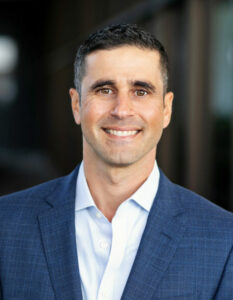Tightened lending standards and declining loan demand at large commercial banks are creating a path for nonbank entities such as Dekel Capital to establish lending platforms.
Dekel, based in Century City, has launched a correspondent lending platform that will operate on behalf of capital providers including a global asset manager and large European bank. The platform will be used to originate balance-sheet and commercial mortgage-backed securities loans for the acquisition, refinancing and recapitalization of commercial real estate assets including build-to-rent and single-family rentals.

“The current economic environment and the regulatory focus on banks, which really curtailed their lending last year — and we’re still seeing it relatively curtailed this year — has been positive for our lending platforms,” Dekel Capital principal and founder Shlomi Ronen said. “People are looking for alternatives outside of banks for groups that can provide cost-effective capital. That’s really where we see a lot of the demand come from.”
The firm expects to originate $500 million on behalf of capital providers this year.
The launch of Dekel’s lending platform marks an addition to the firm’s services. Previously, it was not originating loans on behalf of lending partners, acting instead as an intermediary, sourcing loans from lenders. It’s now underwriting and originating loans for its lending partners to fund.
Nonbank lending
Ronen says the platform can take advantage of the current economy, which is hindering the ability of banks to make loans.
“Their existing loan portfolios aren’t paying off as quickly as they did in the past,” he said. “The net result is that they have very limited capital to actually lend.”
In a survey of senior loan officers’ opinions published by the Federal Reserve in January, respondents from major banks said that in the last three months of last year tighter standards and weaker demand for all commercial real estate loan categories were the norm.
The rise of nonbanks in the lending space, such as Dekel, has been well documented.
According to a fourth-quarter 2021 survey from commercial loan marketplace Cerebro Capital, 64% of nonbank lenders surveyed saw an increase in demand in the quarter. The nonbank lenders surveyed also expected their higher risk tolerance to set them apart from commercial bank lenders.
Davide Accomazzo, a finance instructor at Pepperdine Graziadio Business School, said the regulatory framing that followed the 2007-2008 financial crisis has contributed to the rise of nonbank lending and reduced the ability of traditional commercial banks to extend credit.
“Capital requirements, among other elements, were increased and raised the cost of lending. Additionally, lessons learned from the lending practices that led to the crisis (caused) banks to significantly tighten their lending standards, a practice that endures today,” he said. “This is particularly important at this economic juncture where interest rate increases and comprehensive Federal Reserve actions may cause a recession.”
Competitive advantage?
Thomas L. Thomas, an economics lecturer at California State University – Northridge and quantitative portfolio analyst at City National Bank, noted that it is not clear that capital or liquidity regulations on banks impart any competitive advantage to nonbank lenders given differences in market segments and business models.
Thomas said his views were based on his lecturing and finance experience and did not represent the views of City National Bank or CSUN.
“First, one has to assume that nonbank lenders such as Dekel would be taking away borrowers from commercial banks. Given the current risk practice and industry standards, the consumers that Dekel would attract would be somewhat lower credit-quality borrowers,” Thomas said. “It is not clear that the bank would extend credit even without the regulatory burdens. This means that the nonbank lender assumes a higher degree of credit risk and potential credit losses.”
Nonbank lenders must obtain funding for loans by issuing commercial paper or borrowing in the commercial money market at higher costs, according to Thomas. He added that nonbank lenders must charge higher rates on the mortgages in order to obtain the same return as banks for similar products, putting them at a pricing disadvantage.

The launch of Dekel’s lending platform included the addition of real estate finance veteran Vishal Vanjani as managing director, who will lead the platform alongside Ben Markiles. Both professionals come to Dekel from New York-based CION Investments, for which they operated the real estate capital markets program.
“Unlike other correspondent programs that are generally focused on ‘in-the-box’ financing, we will be able to originate in-house a variety of nonrecourse loans with short-term, floating-rate and long-term fixed-rate capital,” Vanjani said in a statement.
Markiles has originated approximately $2 billion over his career with Deutsche Bank and LoanCore Capital. Vanjani has originated more than $15 billion over his 28-year career.
A new market
With Vanjani’s experience in real estate finance, Dekel has been able to expand outside the commercial real estate sector into residential real estate. Now, with its new platform, it can originate debt in the build-to-rent and single-family rental markets.
Build-to-rent homes are, as the name implies, built for the purpose of being rented. In the current market, such homes are being viewed as an alternative for those who cannot afford a traditional house.
David Howard, chief executive of the National Rental Home Council, said the single-family rental market is something his organization is optimistic about, despite tough conditions.
“The reality is America needs more housing of all kinds, both owner-occupied and rental,” Howard said. “The aim of the single-family rental home industry is to provide a much-needed option for families seeking affordably priced, well-maintained housing in attractive neighborhoods.”
